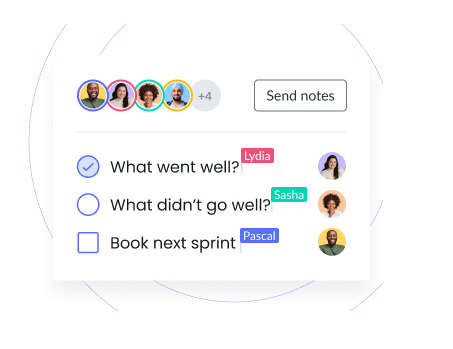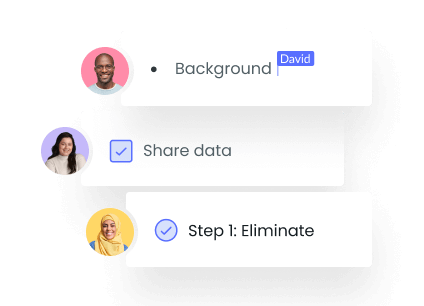OKR Review Meeting Template
Help turn good ideas into great execution. Use this template to review your team's...
View templateHelp turn good ideas into great execution. Use this template to review your team's...
View templateCheck-in with your design team at the end of the week to share accomplishments, ro...
View templateUse this simple 3-step bi-weekly leadership retrospective meeting template, in ord...
View template
Use this Liked and Lacked meeting agenda that covers both positive and negative pr...
View templateHelp your team focus on concrete actions they can take to improve collaboration, p...
View templateUse this fun retrospective template for your team to think about project barriers,...
View template
Use this creative retrospective meeting template to encourage your team to think a...
View templateUse this reflection meeting template to encourage critical thinking and reflection...
View templateUse this template to encourage reflection amongst students and/or workshop partici...
View template
Run an effective retrospective workshop (after a design sprint) to encourage your ...
View templateInspire your team to innovate and rise above industry standards by answering these...
View templateUse this mad, sad, glad template to connect with your team and discuss the way eac...
View template
Retrospective meetings are regular sessions held by a team at the end of a project or sprint. The team uses this time to discuss what went well, what didn’t and how processes can be improved in the future. The goal of these meetings is to encourage open, constructive feedback and collaborative problem solving. Retrospective meetings are a key component of agile methodologies, but can also be used outside of this framework.
The first step to an efficient and productive meeting is to start with an agenda. Fellow makes it easy to create an agenda using one of agenda templates, or by creating one of your own. From there, Fellow prompts meeting attendees to prepare for the upcoming meeting and collaborate on what to talk about. During the meeting, check off points as they get discussed, add notes to have a central source of truth, and document action items and next steps. This way, everyone leaves the meeting on the same page.
Good retrospective meeting agendas ensure that everyone is on the same page about what they’re expected to talk about. Decide early on whether you want to focus on a particular project, timeline, or process so that everyone knows where to focus their attention. It’s also important to figure out what format you’d like to run the retro in: for example, do you want it to be purely a venting session, do you want it to be a brainstorming session, or do you want everyone to list what they learned.